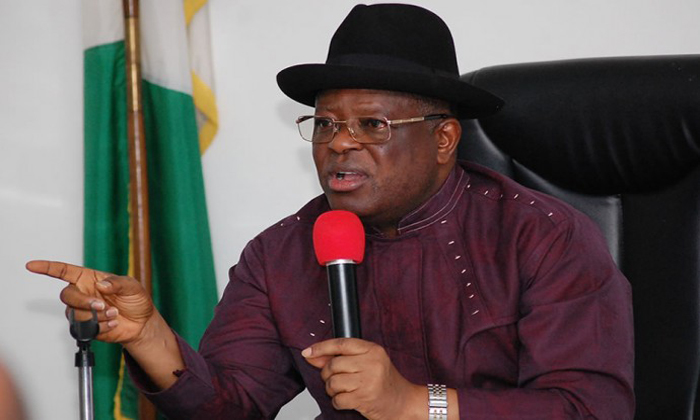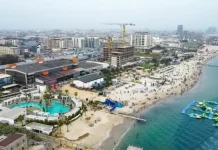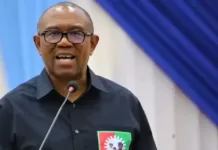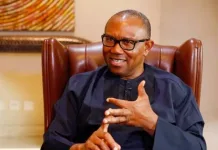The demolition of buildings encroaching on the designated right of way for the construction of the Lagos-Calabar coastal line is ongoing.
The operation was headed by the Minister of Works, David Umahi, and kicked off on Saturday, April 27, at the Mani Chula Beach, Oniru Waterfront.
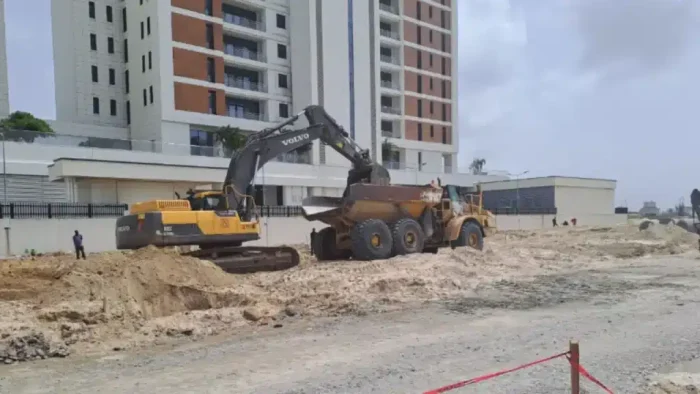
A press briefing was held at Landmark Beach.
During the briefing, Minister Umahi clarified that the demolition would only target shanties and unauthorised structures.
In other words, it will not affect any legitimate infrastructure.
“We are only removing structures that are on the federal government’s Right of Way; the main infrastructures remain untouched,” Umahi explained.
Political Pushback
He also announced that the beach would be closed starting Sunday, April 28.
This, according to the minister will facilitate the clearance operations.
Despite the controversies and political pushback surrounding the highway project, Umahi remains focused on his mandate.
Umahi said: “Those who are playing politics with it can go ahead.
“My job is to ensure the coastal road is constructed within the federal government’s Right of Way”.
The demolition has sparked a debate over the economic and social impacts of the project.
Economic Benefits
However, Umahi urged the affected parties to consider the broader economic benefits that the highway would bring.
According to him, it will enhance connectivity and trade across the involved states.
Meanwhile, the minister said compensation for affected property owners would begin on Wednesday, May 1.
It will end on Thursday, May 2, adhering to the federal government’s approved rates.
Furthermore, the minister emphasised the government’s commitment to a fair compensation process for all affected by the project.
About The Project
The Lagos-Calabar coastal road spans approximately 700 km and is projected to cost ₦15 trillion.
Also Read: Buhari To Commission Blue Line Rail Project, Others In Lagos Next Week
This project aims to connect multiple states from Lagos through Ogun, Ondo, Delta, Bayelsa, Rivers, and Akwa Ibom, finally culminating in Cross River.
With an estimated completion time of eight years and a cost of ₦4 billion per kilometer, this infrastructure project is one of the most ambitious in recent Nigerian history.

